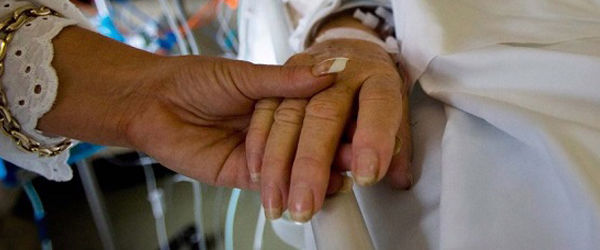“I can resist anything but temptation,” said Oscar Wilde. “I do not do what I want, but I do what I hate,” said St. Paul. Whether we call it weakness of will or lacking self-control, we have all had the experience of knowing what is right, yet doing what is wrong. Fortunately, scientists studying weakness of will have recommended several remedies that can help anyone struggling with temptation. Christians hoping to be more faithful in living out their vocation can learn much from this research. And that’s good news, especially for those unsure of the place of science in Christian living and perhaps more inclined to rely on prayer alone in overcoming difficulties. Recall the Second Vatican Council’s teaching:“In pastoral care, sufficient use must be made, not only of theological principles, but also of the findings of the secular sciences, especially of psychology and sociology, so that the faithful may be brought to a more adequate and mature life of faith” (Gaudium et Spes, n. 62).Researchers found that we can prepare for success in moments of temptation by strengthening our willpower before the occasion arises. Small exercises in self-control (e.g., sitting up straight, speaking without slang or swearing, getting up when the alarm goes off, not putting butter on bread) strengthen overall self-control. In the Catholic tradition, these exercises are often called mortifications. Researchers also have found that physical exercise is, in the words of Stanford psychologist Kelly McGonigal, “a willpower miracle.” In her book, “The Willpower Instinct: How Self-Control Works, Why It Matters, and What You Can Do to Get More of It,” she noted that a five-minute dose of exercise is often all that is needed to boost willpower. In another finding, psychology professor Roy Baumeister pointed to a link between external order and internal strength. For instance, if you have trouble resisting temptation, you may want to clean your house to boost self-control. Scientists also discovered four willpower drainers: sleep deprivation, poor nutrition, alcohol consumption and stress. Avoiding these can make us more able to resist temptation.McGonigal notes that many people do not relieve stress as much as they distract themselves from it. According to the American Psychological Association, the most effective stress relief strategies include doing a creative hobby, walking outside, playing sports, praying, reading, listening to music, and spending time with friends. Nevertheless, we all sometimes experience weakness of will. What we should not do after we lapse is say to ourselves things like, “I’ve committed one mortal sin, I might as well commit more sins,” or “I am such a horrible, irredeemable person.” Willpower slips can lead to even more failures in an effort to relieve unhealthy guilt and anxiety about the failure.As Venerable Bishop Fulton Sheen said, “When you fail to measure up to your Christian privilege, be not discouraged for discouragement is a form of pride. The reason you are sad is because you looked to yourself and not to God; to your failings not to his love. You will shake off your faults more readily when you love God more than when you criticize yourself. God is more lenient than you because he is perfectly good and therefore loves you more. Be bold enough then to believe that God is on your side, even when you forget to be on his.” Following the example and teaching of Jesus, we should extend compassion, forgiveness and mercy to all human beings, including ourselves. Our failures, McGonigal points out, are great opportunities to learn how to succeed in the future. We can improve our self-control by seeing how and why we lose control. When we find patterns in our unwanted behavior, we can prepare to navigate through the situation better. One way to avoid such lapses is through what researchers call “pre-commitment.” As much as we can, we should make it so that there is “no way out” for us when we foresee we may have weakness of will. In 1519, Hernán Cortés exercised pre-commitment when he burned his ships so that his men would not be tempted to turn back upon their arrival in Mexico. We can also “burn our ships” to make it more difficult to have a willpower lapse. This might mean not going to certain places, not being with certain people, or avoiding other triggers for temptation. Finally, it turns out that willpower is contagious and communal. We are much more likely to succeed if we join a group that is struggling with the same willpower challenge. Research shows that even thinking about a “willpower wonder” can help strengthen a person. We can recall saints, living and deceased, who had self-control challenges but did the right thing anyway. To receive social support, we can communicate our struggle with a spiritual director or with a priest in confession. This is also why communal forms of prayer — such as Mass — help those struggling to live a Christian life increase their willpower. Willpower is something every Christian needs, and contemporary science can help us in this endeavor. To know the right thing is wonderful. To do the right thing is even better. Dr. Christopher Kaczor is acting chair and Professor of Philosophy at Loyola Marymount University in Los Angeles, and the author of “The Seven Big Myths about the Catholic Church” and “How to Stay Catholic in College.”Self-control tips—Focus on only one willpower challenge at a time.—Sleep, eat and exercise your way to greater willpower.—Exercise self-control in small things to strengthen overall willpower.—Read Kelly McGonigal’s “The Willpower Instinct: How Self-Control Works, Why It Matters, and What You Can Do to Get More of It.”—Make it social: Ask God, a spiritual director or confessor, and the saints for help; join a group.

